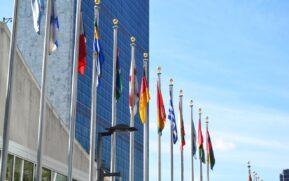
In a significant escalation of the ongoing conflict, Russia launched a large-scale air assault on Kyiv, Ukraine's capital, on August 28, 2025. The attack involved drones and 31 types of missiles, resulting in the deaths of at least 21 people, including four children, and injuring 48 others. This rare strike targeted the city center, damaging nearly 100 buildings, including a mall and European Union diplomatic offices. The assault has drawn strong condemnation from European leaders and the United Kingdom, who have summoned Russian envoys in protest. Ukrainian President Volodymyr Zelenskyy condemned the attack and urged for stronger international responses and sanctions.
The Kremlin has stated that it still supports peace talks, but Western criticism has intensified over Russia’s lack of commitment to negotiations. Peace efforts have largely stalled despite recent discussions between U.S. President Donald Trump and Russian President Vladimir Putin. Meanwhile, Ukraine has appealed for an emergency U.N. Security Council meeting. Russia claims the targets were part of Ukraine’s military-industrial complex, while Ukraine continues to strike Russian oil infrastructure in retaliation. Diplomatic progress remains elusive as the humanitarian toll mounts and both sides intensify military operations.
In the aftermath of the attack, Swiss President Karin Keller-Sutter met with Ukrainian Prime Minister Yulia Svyrydenko in Bern to discuss Ukraine's peace process and post-war reconstruction. During the talks, the two nations unveiled 12 Swiss-supported reconstruction projects targeting infrastructure, public transport, healthcare, and humanitarian mine clearing. Key Swiss companies involved include Geberit, Divario, and Roche Diagnostics. The Swiss government has allocated approximately 100 million Swiss francs to back these initiatives.
On the battlefield, Russian forces have made one of their largest advances of the year in eastern Ukraine, pushing 10 kilometers near Pokrovsk and threatening to encircle the city. Ukrainian troops from various brigades, including the 93rd mechanized brigade, managed to halt the Russian advance and reclaim some territory north of Pokrovsk. The intensification of Russian offensives highlights the strategic importance of Ukraine's remaining fortified cities in Donetsk, particularly Kramatorsk and Slovyansk. These cities form part of a heavily-defended 45km-long barrier critical to Ukraine’s eastern defense.
In a significant policy shift, Ukraine has amended its wartime border policy to allow men aged 18 to 22 to leave the country. This change eases a rule enacted after Russia's full-scale invasion that barred adult males under 60 from departing. President Zelenskyy announced the change, which was coordinated with military leaders. Prime Minister Svyrydenko clarified that it also applies to those already abroad. The travel ban had created societal tensions, with families separated and boys under 18 being sent abroad to avoid future restrictions. Despite calls from Western nations to lower the military conscription age to address troop shortages, Zelenskyy has resisted, citing lack of sufficient weapons support. A voluntary service program targeting 18 to 24-year-olds launched with financial incentives earlier in the year has not significantly improved recruitment. Demographic challenges and high military casualties—60,000 to 100,000 Ukrainian soldiers killed since 2022—further complicate the situation. Ukrainian public opinion strongly opposes reducing the mobilization age, according to a Socis poll. The war has also led to a mass exodus of women and children, with over 30% of EU-registered Ukrainian refugees being minors.
77 People Are Viewing This News Right Now





